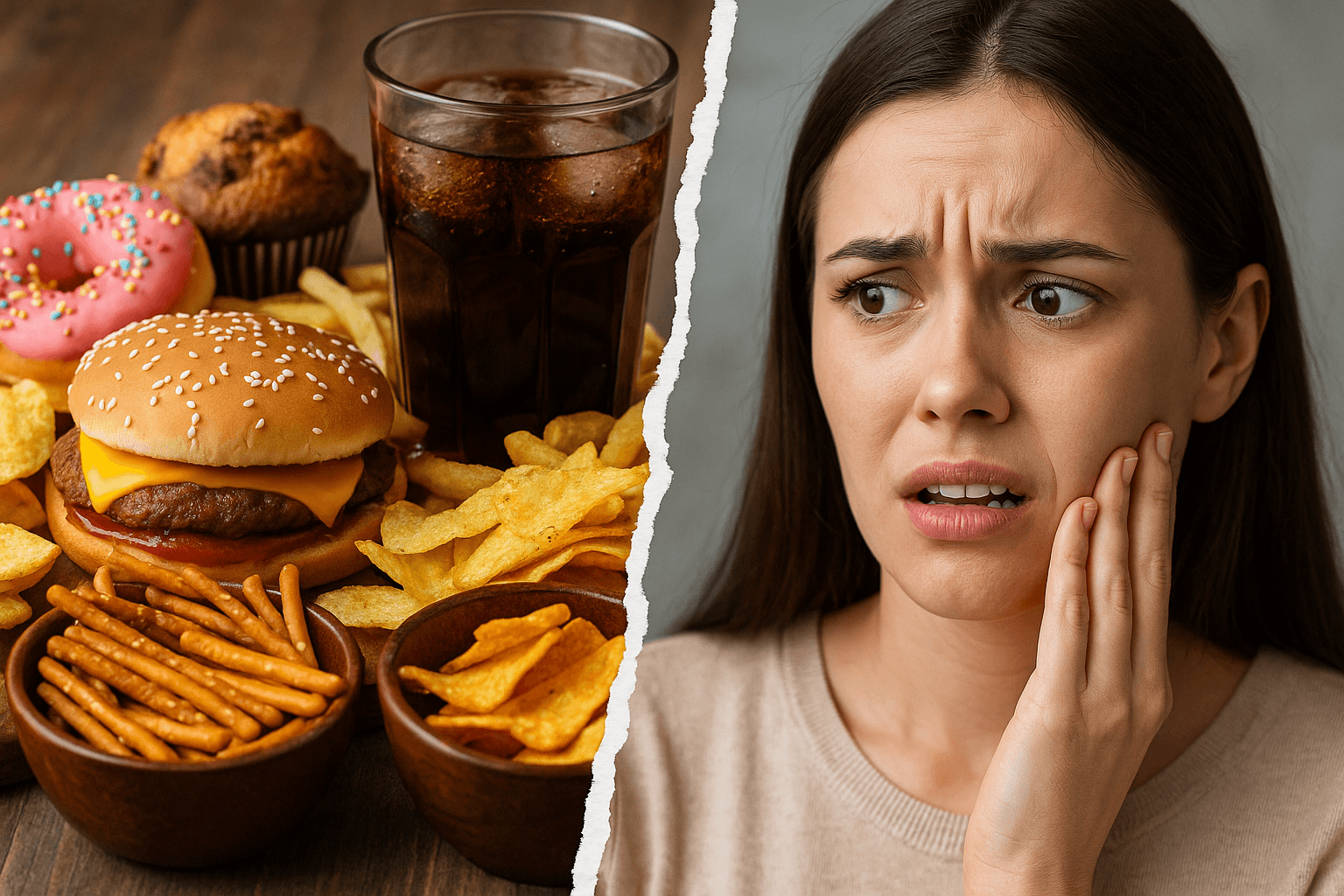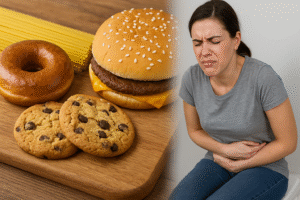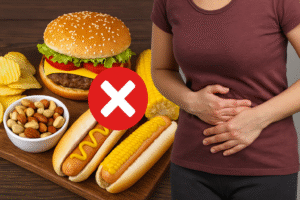You may have read a food label and been mystified by the strange additives. You are not the only one to do so; this is a sure sign that you have been consuming what are referred to as ultra-processed foods (UPFs). It is surprising how much of these UPFs one consumes, from ready-to-eat snacks to sweet breakfast cereals. And while they may be convenient and appealing, they can damage your health in ‘surprising’ ways.
Common Ultra-Processed Foods You Might Be Eating
- Breakfast cereals and granola bars
- Packaged cookies and chips Instant noodles and microwave meals
- Sugary sodas and fruit punch
- Processed deli meats & hot dogs
These are items that many a pantry in households around the world is stocked with.
How Ultra-Processed Foods Affect Your Physical Health
Let’s get personal. During college, I used to feed on sugary snacks and frozen dinners because it was so quick, affordable, and tasty to the palate. Not until later did I come to realize that I was as ‘fueling’ as ‘toxic’. However, I would often experience bouts of sluggishness and bloating, which I now understand better. This is just one way in which ultra-processed foods can negatively impact your physical health:
1. Weight Gain and Obesity
Research has shown that ultra-processed foods are associated with unwanted weight gain. How? Perhaps because they are usually loaded with added sugars, unhealthy fats, and salt, which cause overeating. In addition, they are ‘hyper-palatable,’ meant to taste really good such that we crave eating more of them. No wonder a bag of chips can disappear right in front of you.
2. Chronic Diseases: High Risk with Ultra-processed Foods
Lifestyle with more ultra-processed food consumption can result in increased risks for the following chronic diseases:
-Heart disease
-Type 2 diabetes
-High blood pressure
-Some cancers
Many of these food items are jam-packed with sugar, trans fats, and sodium, all the ingredients that can kick off inflammation and stress the body over time.
3. Poor Gut Health
It acts as the second brain, controlling digestion, immunity, and even mood. It adversely affects gut bacteria since it’s low in fiber, high in artificial additives that the body finds hard to break down; and may affect digestion which then affects total wellness.
The Gut and Mental Health
What you fuel your body with can make you not just “what you eat” but also what you think.
1. Depression and Anxiety
Consumption of ultra-processed foods is highly correlated with depression, inflammatory processes, and/or maybe secondary to the dearth of essential nutrients necessary for the correct operation of the brain. I remember one really tough semester, for example when I was practically living on frozen pizza and take-out. It did a number on my mood, increased my anxiety, and made sleep very elusive at times. Looking back, it’s obvious it was my diet feeding into my struggles.
2. Energy and Sleep Disruptions
Ultra-processed foods similarly contribute to raising blood sugar levels, and thus energy spikes that are usually followed by fatigue, focus problems, and even bad sleep. In fact, if you find that you sleep a lot but still wake up feeling tired, the problem might be what you’re eating.
Why Are Ultra-Processed Foods So Addictive?
Ever opened that bag of chips planning to eat “just a few” and found it empty? It’s not a willpower problem; it’s science. Ultra-processed foods are formulated to be addictive, marrying sugar, salt, and fat to ignite pleasure centers in the brain. Some studies go as far as comparing their effect to addictive substances, i.e., drugs or alcohol.
How to Cut Down Without Going Cold Turkey
To think one could entirely wash away ultra-processed foods is unrealistic. Come on. Life gets busy. Sometimes, you just need the convenience, but this does not have to be you being perfect; just more mindful. Here are some simple ways to make healthier choices:
1. Read the label if you can
If the ingredient list reads like a chemistry lab’s inventory or goes on forever, steer clear. Choose products with fewer, more recognizable ingredients.
2. Cook at Home
In fact, most of the times simple meals like stir-fry, salads, or baked chicken with vegetables do take a short period to prepare and are generally much healthier than their pre-made counterparts.
3. Replace Processed Snacks With Healthier Options Such as:
-Fresh fruit with nut butter
-Greek yogurt with honey
-Popcorn made on the stove or air-popped
4. Emphasize Whole Foods
Mainly, people must eat more “real food” found in nature instead of food from a factory, such as:
End of the post
– Fruits and vegetables
– Unprocessed whole grains such as quinoa and oats
– Beans, lentils, legumes
– Healthy proteins such as eggs, chicken, fish
Final Thoughts
Cutting out your whole pantry. Cutting even a little bit of ultra-processed foods out of your diet can really boost your energy, mood, and overall health–it is quite noticeable and measurable. Think about food as fuel for not only your body but also your brain: the better the fuel, the better it will run. The next time you are at the grocery store, ask yourself whether your great-grandparents would even recognize this as food. If the answer is no, then don’t buy it.
Ultra-processed foods are everywhere, but you do not have to allow them to take over your diet. Making one snack or one mealtime better choice by understanding what you are doing to yourself at that time and making it easy for better choices to be made in the future, you help yourself break free from their hold.








